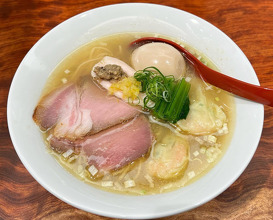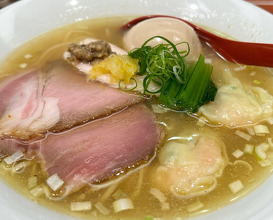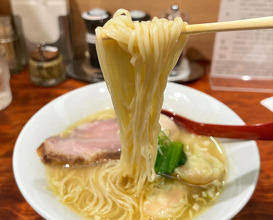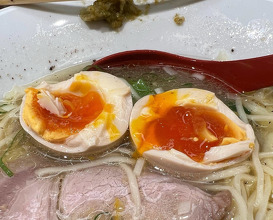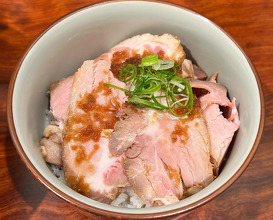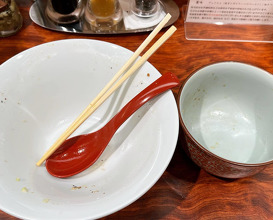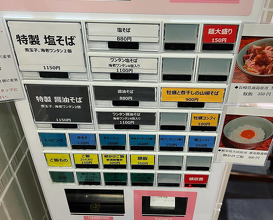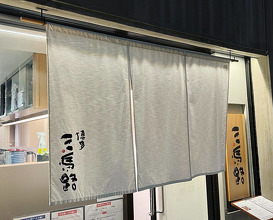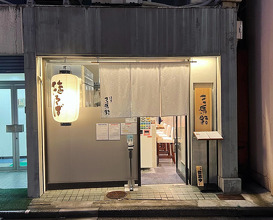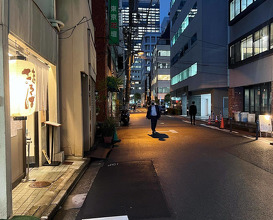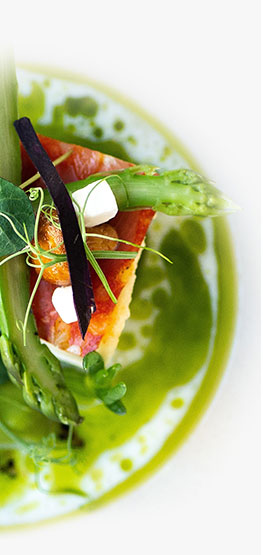特製塩そば / Tokusei Shio Soba / Sanmaro - Kanda, Tokyo
Clear shio soup is made from Daisen brand whole chickens, chicken carcasses, asari clams, kombu, niboshi, saba niboshi, saba-bushi and katsuobushi. The shio tare contains two varieties of salt, the shoyu tare uses three kinds of soy sauce. Medium-thin straight noodles are provided by Kanno Seimen, cut on a number 22 cutter. The chashu is topped with yuzu and duxelles, a mushroom sauce of porcini paste and shiitake.
Sanmaro first opened as a yatai in the Nakasu area of Fukuoka around 1940. The original master, Mori-san, wanted to reproduce the ramen he had eaten in Shanghai (before WWII). A decade later in 1951, his apprentice Moriyama-san opened another yatai in the area called Gomaru (a name given by Mori-san). Moriyama-san's brother-in-law Tejima-san helped him run the business for a couple of years, then Tejima-san opened his own Gomaro shop in the Gion district of Hakata in 1953. Tejima-san and his wife ran the business until retirement in 1993, when their son took over. In 1994, he decided to change the name and concept, becoming Uma Uma and operating as a 'ramen izakaya.' Uma Uma is now run by the ‘Vigor’ company (Tejima-san is a representative) and has two shops in Hakata and one each in Singapore, Thailand, The Philippines and Tokyo Station. This new branch of Sanmaro is located in Kanda and run by master Fuji-san. Rather than serve Hakata tonkotsu, the menu offers new-school kodawari shio and shoyu. Open since December 2021. @sanmaro1941
